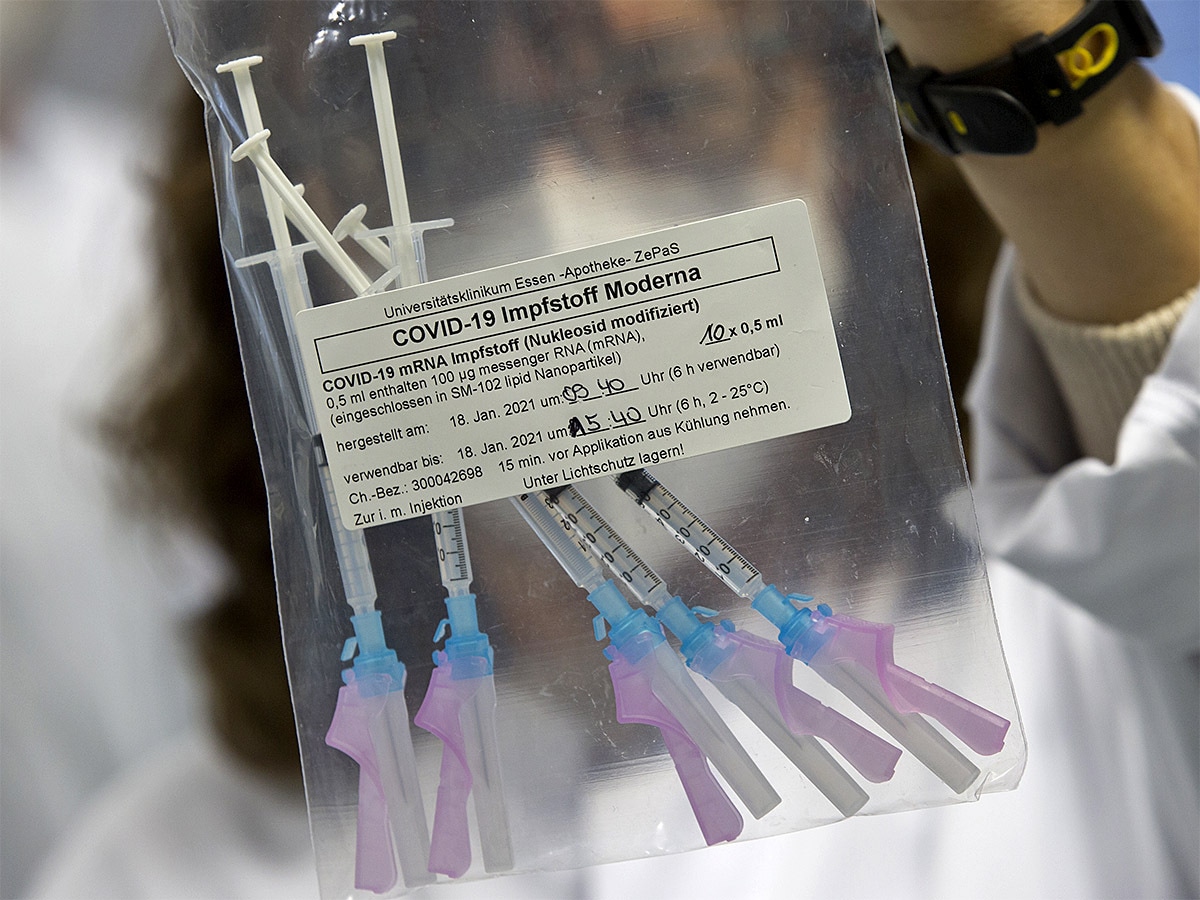Early 2021 saw a sharp rise in Moderna’s [MRNA] share price. By 8 February, it had risen 78% since the start of the year to $185.98. However, a month later, Moderna’s share price closed at $123.47, 33.6% down from its February peak.
Moderna’s share price struggled throughout March, closing 30 March at $118.49, but saw a surge in April to close 3 May at $186.02, 78.1% up in the year to date.
However, recent days have seen a decline in Moderna’s share price, which closed 12 May at $152.68, 6.3% down from a week earlier. Despite this tumble, Moderna’s share price was still 46.1% up in the year-to-date, and 144.9% above its level 12 months previously.
Profit and patents
On 6 May, the pharmaceutical and biotech company announced results for the first quarter of 2021, including its first-ever profit — a handsome $1.22bn, or $2.84 per share. In the equivalent period for 2020, the company lost $124m.
Total revenue of $1.94bn (up a huge 22,995% year-over-year from $8.4m) was boosted by income from 102 million doses of its COVID-19 vaccine, as well as income from grants and collaborations. Moderna increased its supply target for 2021 to between 800 million and 1 billion vaccine doses.
22,995%
Moderna's total revenue increase YoY
Despite these positive results, Moderna’s share price has since struggled due to the possibility of a temporary patent waiver for COVID-19 vaccines. The US administration is said to support waiving intellectual property (IP) rights in order to allow developing nations to manufacture their own vaccine supply.
Moderna has insisted that a waiver of IP rights over the vaccine would not affect its projections. Stéphane Bancel, CEO of the company, underlined its statement last October that it would not enforce its COVID-19-related patent rights “while the pandemic continues”.
A one-off boost?
The question on investors’ minds will be whether the surge in vaccine-derived income is sustainable. If Moderna is able to sell the vaccine doses it aims to produce this year at profitable prices, the company should continue to generate the kind of large revenues it announced for its first quarter.
However, the market appears unconvinced this will transpire. US president Joe Biden’s support for IP waivers on 5 May overshadowed the earnings news.
Moderna’s share price fell 1.4% on 6 May, possibly in recognition of the large proportion of Q1’s revenue accounted for by vaccine sales. Any factor that dents demand for the Moderna vaccine — for example, a patent waiver allowing competitors to replicate it more cheaply — is likely to eat into this revenue stream.
But Bancel may be right to remain calm. Before tumbling during Q1 2020, Moderna’s revenues for the previous four quarters totalled between $13m and $17m. However, since the $8.39m announced for Q1 2020, these have increased rapidly, from $66m in Q2 2020 to $571m in Q4.
For 2020, annual revenue increased 1,238% from 2019’s, and the revenue announced for Q1 2021 alone represents a 141.2% increase again on 2020’s total. There is a lot of revenue to cut into should vaccine demand fall.
The costs landscape is also promising for Moderna and its shareholders. Total operating expenses rose from $188.48m in Q2 2020 to $845.78m in Q4 2020, but then fell 20.7% to $671m in Q1 2021. R&D costs, which historically make up the bulk of Moderna’s operating expenses, saw an even greater drop of 47.2% in Q1 2021, implying the main sunk costs of developing its latest products are now behind Moderna, and a larger portion of its future revenues will be profit.
If Moderna sells its expected 200–250 million vaccine doses in Q2 at similar prices to the 102 million it sold in Q1, this will be a massive figure.
This business model may only last as long as the coronavirus pandemic. However, there will be an ongoing demand for vaccine boosters to combat emerging variants of the disease, and Moderna is likely to be on the frontline producing these.
Technology (including biotech) companies generally benefit from large windfalls that can be reinvested in R&D for new products, so Moderna should experience a long-term benefit if it is able to scale its operations to face the next immunological threat.
Disclaimer Past performance is not a reliable indicator of future results.
CMC Markets is an execution-only service provider. The material (whether or not it states any opinions) is for general information purposes only, and does not take into account your personal circumstances or objectives. Nothing in this material is (or should be considered to be) financial, investment or other advice on which reliance should be placed. No opinion given in the material constitutes a recommendation by CMC Markets or the author that any particular investment, security, transaction or investment strategy is suitable for any specific person.
The material has not been prepared in accordance with legal requirements designed to promote the independence of investment research. Although we are not specifically prevented from dealing before providing this material, we do not seek to take advantage of the material prior to its dissemination.
CMC Markets does not endorse or offer opinion on the trading strategies used by the author. Their trading strategies do not guarantee any return and CMC Markets shall not be held responsible for any loss that you may incur, either directly or indirectly, arising from any investment based on any information contained herein.
*Tax treatment depends on individual circumstances and can change or may differ in a jurisdiction other than the UK.
Continue reading for FREE
- Includes free newsletter updates, unsubscribe anytime. Privacy policy





